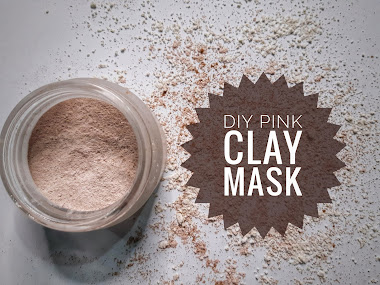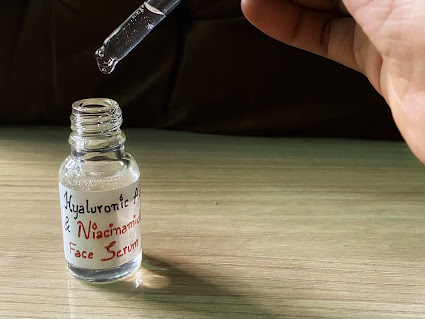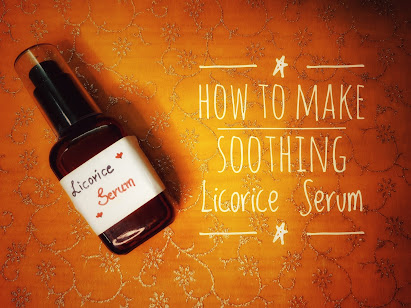DIY Pink Clay Mask
Clay Masks are known to absorb oil and dirt from the skin, helps in preventing acne and clogged pores. Clay masks are relaxing and rejuvenating.
There are different clays for different skin types. Rose clay is suitable for sensitive skin. It is very gentle and has minerals like Silica which exfoliate skin lightly.
Similar to Rose Clay, Kaolin clay has exfoliating properties and works great for acne prone skin by absorbing oil. It is also known to tone the skin.
Calamine powder consists of zinc oxide and iron oxide. It has been used from years as an anti-septic. It is a soothing and healing ingredient which may help in reducing wrinkles and inflammation.
Sandalwood powder, Kasturi Manjal and Ananthamool powder (also known as Sugandhi Pala, Indian Sarsaparilla) are used in Ayurveda. These herbs are known for its skin healing and toning properties. It helps in reducing pigmentation and combatting skin blemishes, improves skin texture.
Oatmeal has saponins which are natural cleansers. It can soak excess oil and helps treating acne. It also works as a light exfoliating ingredient.
L'ascorbic acid is form of Vitamin C which has good anti-oxidant properties which fights free radicals, also makes skin glowing.
About L'ascorbic acid:
L'ascorbic acid is water soluble form of Vitamin C which is very effective. It is a powerful antioxidant which helps in fading blemishes. But, it is highly unstable too. It oxidizes when exposed to air, light and when added to water based product & stored for a long time.
If you add L'Ascorbic acid in water and leave it for few days, you can see it changing color to brown and has a different smell. Applying oxidized one will irritate skin. So, formulating with water(distilled) at home is a difficult task. There are other ways of incorporating it too but I don't have access to all the ingredients, so I thought of adding it in a clay mask. I have made test sample before 4 months, it is stable and has a good feel when used even now.
When the mask is mixed with water to apply, it will be diluted. I have added 5% in dry mask, but when it is diluted in water, it will be around 3% or less and not irritating to skin.
Note: pH of the mask varies with water percentage. When I have tested in with 10% and 50% dilution rates with strips and pH meter, it was between 5-6. The pH of the mask depends on the pH of water added too. I haven't found this irritating to my skin but if you are sensitive to ascorbic acid, you can exclude it.
There are few things to consider,
Since it oxidizes quickly, this mask needs to be stored in an air-tight container. It is better to add in dark or amber color container with flip-flop kind of opening to limit oxidation.
Also, clay masks are prone to microbial contamination, limiting exposure to water or hands into the container would help in increasing shelf life.
Ingredients required: 10g batch
Calamine powder 20% (2g)
Kaolin Clay 10% (1g)
Sandalwood powder 10% (1g)
Oatmeal powder 20% (2g)
Ananthamool Powder 3% (0.3g)
Wild Turmeric (Kasturi Manjal) 2% (0.2g)
L'ascorbic acid 5% (0.5g)
How to Make it?
It is so simple. Put all ingredients in a beaker, stir it to mix and pour in an air tight container. (You can use a plastic sieve to mix evenly)
Do you want to watch this, click here?
Substitutions:
1) Any clay mask which suits your skin type can be used.
2) Herbal powders which are available to you and that works for you can be used like lavender powder or calendula powder or chamomile powder.
3) L'ascorbic acid is optional.
4) Colloidal oatmeal can be used in place of oatmeal powder.
Shelf life:
This mask can be used up to 6 months if stored properly.
Where to Buy Ingredients - supplier links: (Click on the links to open)
You can check my page (Where to Buy Cosmetic Ingredients and Containers in India?) for local supplier details.







Comments